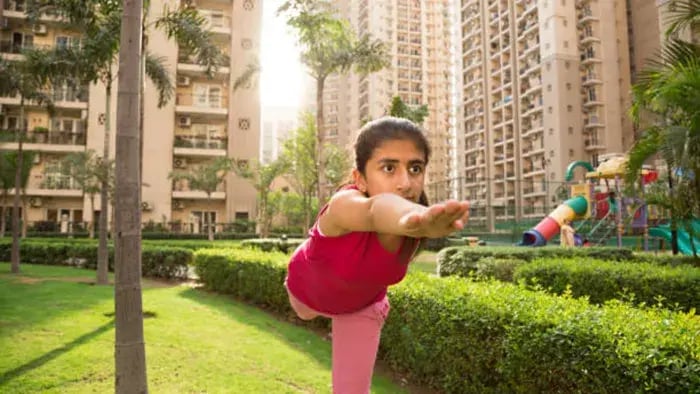- Hydrate Regularly
- Time Outdoor Activity Wisely
- Fuel With Cooling, Balanced Meals
- Support Electrolyte Balance
- Rest and Recover
- Watch for Overheating
- Wear Breathable Clothes
- Protein-Rich Recovery Snacks
- Balance is Key
Introduction
Teenagers who love sports or physical activity push themselves hard even during the hot summer months. While their enthusiasm and energy is great, the combination of intense movement and heat can lead to fatigue, dehydration, heat exhaustion or minor injuries if not managed well. A few mindful changes in their daily habits can make a big difference in how their body performs and recovers.

Summer care for active teens starts with balanced hydration, smart meal planning and structured rest. Nutritious foods that support muscle repair, cool the body and maintain energy are a must during this time. Fresh fruits, curd-based drinks, coconut water and light home-cooked meals are the fuel they need to keep up with their activity levels. Encouraging small breaks, wearing breathable clothes and limiting outdoor workouts to cooler hours are simple ways to prevent heat-related issues.
Parents play a big role in guiding their teenager’s routine by observing signs of exhaustion and ensuring recovery is part of the schedule. Supporting their goals doesn’t just mean cheering from the sidelines — it means helping them build habits that protect their growing body. With the right balance, summer can be a season of healthy strength, skill-building and long-lasting stamina.
Beat The Heat With These Top 9 Summer Health Tips For Athletic/Active Teenagers

Hydrate Regularly
Active teenagers often forget to drink water during intense sports or outdoor activities. Make sure your teen starts the day with a glass of water and carries a bottle during training or games. According to a study published in Curr Pain Headache Rep 2021, coconut water, lemon shikanji, and fresh fruit-infused water are also great options. Remind them to take small sips often, especially when they are sweating more than usual.
Time Outdoor Activity Wisely
Encourage outdoor play or workouts early in the morning or late in the evening when the sun is soft and the air is cool. Between 11 am and 4 pm it’s best to stay indoors or do light indoor exercises. This reduces the risk of heat exhaustion and ensures your teen gets the most out of their performance without adding stress to their body.
Fuel With Cooling, Balanced Meals
Include water-rich fruits like watermelon, mango and papaya along with vegetables like cucumber, lauki and tinda. Light home-cooked meals like curd rice, moong dal khichdi and vegetable parathas keep the body full without weighing it down. A study in Front Physiol 2021 shows that each meal should have carbs, protein and natural fats to help with energy and recovery after physical activity.
Support Electrolyte Balance
Active teens lose essential salts through sweat. As per FSSAI, include natural electrolyte boosting drinks like buttermilk, sattu sharbat or fruit smoothies with a pinch of rock salt. These help maintain fluid balance, prevent cramps and support muscle function. Avoid sugary sports drinks — homemade options are often more effective and healthier.
Rest and Recover
Make sure your teen gets enough sleep and downtime after intense physical activity. At least 8–10 hours of sleep at night and occasional naps or light stretching during the day help the body recover and avoid burnout. Active teens often focus only on doing more — remind them that proper rest is key to long-term strength and stamina.
Watch for Overheating
According to UNICEF, look out for red cheeks, dry lips, excessive sweating or sudden tiredness — these may be signs of overheating or dehydration. Teach your teen to pause and cool down if they feel dizzy, restless or unusually tired. Provide a shaded area, a glass of cool water and time to relax if needed.
Wear Breathable Clothes
Encourage lightweight, breathable and loose cotton clothes for all sports and outdoor activities. Avoid tight or synthetic materials as they trap heat and sweat. A comfortable cap, cotton socks and appropriate footwear also reduce the chances of rashes or skin irritation during long play sessions.
Protein-Rich Recovery Snacks
After a training session or game, offer snacks like boiled eggs, curd with fruits, paneer cubes, soaked almonds or a banana shake. According to the National Institute of Nutrition, India, these snacks are rich in protein and healthy carbs, essential for muscle recovery. If your teen is lactose intolerant, use almond milk or soy-based options for smoothies and snacks.
Balance is Key
Encourage a routine that includes physical activity, study, hobby time and rest. Too much activity without balance can lead to burnout while too little movement may reduce performance. Help your teen create a flexible summer schedule that prioritises their health, interests and social time — all while respecting their energy levels.
Conclusion

With the right care and habits your active teenager will love summer. By hydrating, cooling meals, balanced training and timely rest you help them get stronger and safer in the heat. These small changes can make summer not just productive but fun, healthy and energetic for your teen athlete.
Her love for storytelling began with reading her grandfather’s speeches, where Tarishi saw the power of words in creating lasting memories. Combining her passions for food and writing, she has turned her life into a fulfilling path of sharing stories that celebrate flavours and how food brings communities together.
The views expressed are that of the expert alone.
The information provided in this content is for informational purposes only and should not be considered a substitute for professional medical advice, diagnosis, or treatment. Always seek the advice of your physician or another qualified healthcare provider before making any significant changes to your diet, exercise, or medication routines.
References
https://pmc.ncbi.nlm.nih.gov/articles/PMC8280611/
https://www.nin.res.in/downloads/DietaryGuidelinesforNINwebsite.pdf
https://pmc.ncbi.nlm.nih.gov/articles/PMC8471852/
https://fssai.gov.in/upload/uploadfiles/files/STANDARDS_OF_ENERGY_DRINKS.pdf
















